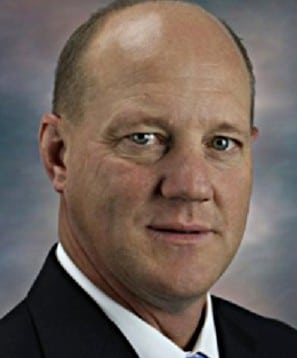
(By Rick Fink) Before we get into what we should call them, let’s start with this: are you actually conducting regular meetings? If you are, congratulations, and if you’re not, start!
Ask yourself some tough questions. Are your meetings productive? If you were to ask your team, would they say they look forward to them? Are the meetings helping your team get better, or are they considered a waste of time?
Let’s be honest: creating good, productive meetings is not easy. Coming up with interesting and worthy material that keeps your team engaged week in and week out is a challenge.
Now on to what should we call them. I’m firmly a “training meeting” guy for two reasons. First, the word “training” symbolizes that you are getting better.
Second, I have never met anyone that honestly admits to liking “sales meetings.” In a survey of over 540 media reps conducted by ENS Media a few years ago, we found that 85 percent of the reps felt sales meetings were a waste of time! I am going to go out on a limb to say, all things being equal, if those same meetings had been called “training meetings,” the results would have been a bit more positive, simply because the reps would have felt they were at least meant to be helped rather than having to sit in on a “sales meeting.”
Rudyard Kipling wrote, “Words are the most powerful drug known to mankind.” I agree. One simple difference in words, “training” rather than “sales,” has significant impact.
Now that we have settled what we should call them, let’s discuss the 10 Do’s & Don’ts for effective meetings.
1. Do plan and prepare meetings from a salesperson’s perspective. With every item on the agenda, answer the question “What’s in it for me?” from a salesperson’s point of view.
Don’t use the meetings as a forum to discuss individual accounts receivable problems or other “downers.”
2. Do start and finish the meeting with positive, upbeat topics. Have the salespeople share “good news” stories about your station, your market, a sale, or a client’s success.
Don’t dwell on topics that do not pertain to the majority in attendance. Such topics should be dealt with one on one.
3. Do have an agenda, and circulate it to the staff ahead of time. This forces you to prepare for the meeting and gives the staff a chance to prepare for it as well.
Don’t be the only speaker on the agenda. From time to time bring in other staff members, suppliers, other marketing professionals, or even clients to enlighten your team, answer questions, and help train the staff.
4. Do use multi-sensory materials (i.e. audio, video, whiteboard, handouts of articles, etc.)
Don’t simply stand in front of the room and talk.
5. Do recognize any group or individual staff accomplishments. Always have something positive for every meeting.
Don’t ever reprimand anyone individually during a meeting!
6. Do encourage participation. Ask questions. Get staff members to present or chair certain segments.
Don’t let the participation evolve into “mutiny sessions.” Don’t ignore complaints, but answer them quickly, and move on.
7. Do have your meetings on the same day and time consistently. This way the staff can plan, and you avoid the old “I thought the meeting was next week” excuse.
Don’t change the meeting day or time unless it’s for a very good reason, and never make a habit of it. Changing the meeting sends a signal that sales meetings are not important and shows a lack of respect for your staff’s time.
8. Do keep meetings as short as possible — one hour, max. Whether your meetings are 30 minutes or one hour, always keep them to that amount of time. Morning meetings are best. Research has proven the human mind is much more receptive, and retention levels are higher, in the morning!
Don’t try to cover too many topics at one meeting.
9. Do plan ahead, and not just for the next week. Write down topic ideas for future meetings and then start gathering info. Create a file, and when you see articles, videos, or other ideas for effective training meetings, keep them in there. Prepare, prepare, prepare!
Don’t plan meetings the night or day before. It’s a recipe for disaster. Your team members will not only notice it, they will absolutely know it!
10. Do lighten up! Have a surprise visit from Santa at a Christmas sales meeting, or have coffee and birthday cake if a member is celebrating a birthday. Keep them fun!
Don’t limit attendance to salespeople. Everyone who has customer contact, from the receptionist to the accounts receivable clerk, should be invited when the agenda covers ground of interest to them.
Rick Fink is President of ENS Media USA and Business Partner with Wayne Ens of Ens Media Inc. Ens Media specializes in helping media companies across NorthAmerica create stronger partnerships with locally owned businesses and increase stations’ local direct sales with several proven revenue-generating programs. he can be reached at [email protected]






Thanks for posting this. Great reminders and suggestions.
Steve,
Thank you for the note. We always appreciate the feedback!
Here’s to Happy Training!
Never Stop Learning – Get Better Every Day!